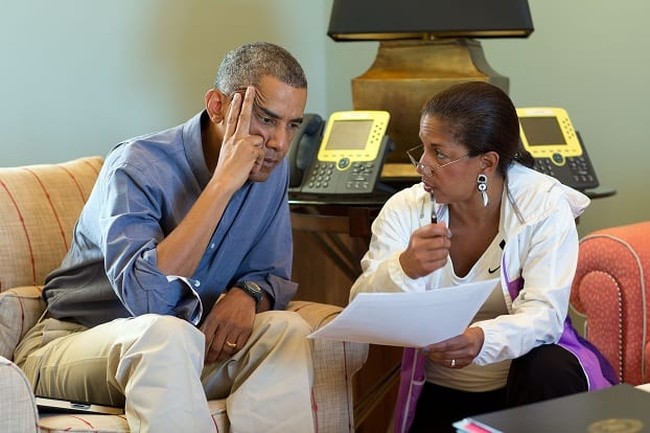 The current crisis in Iraq that has caused Barack Obama to flee Washington and responsibility for Martha’s Vineyard in search of a perfect tee-time . There are many causes for the current mess, most of them can inevitably be traced back to Obama. The ill-conceived overthrow of Muammar Gaddafi, the flow of arms to “moderate” forces in Syria, the release of the head of ISIS from US custody, the lack of influence on the actions of the Maliki government have all served to highlight the moral and intellectual bankruptcy of the administration. The only entertaining part of this sorry spectacle has been watching Obama trying to gaslight us on why we are in our current predicament in Iraq. According to Obama, he did not want to withdraw US forces from Iraq but was forced to by the Iraqis. This will come as a shock to anyone who had brain activity from 2007 through 2011.
The current crisis in Iraq that has caused Barack Obama to flee Washington and responsibility for Martha’s Vineyard in search of a perfect tee-time . There are many causes for the current mess, most of them can inevitably be traced back to Obama. The ill-conceived overthrow of Muammar Gaddafi, the flow of arms to “moderate” forces in Syria, the release of the head of ISIS from US custody, the lack of influence on the actions of the Maliki government have all served to highlight the moral and intellectual bankruptcy of the administration. The only entertaining part of this sorry spectacle has been watching Obama trying to gaslight us on why we are in our current predicament in Iraq. According to Obama, he did not want to withdraw US forces from Iraq but was forced to by the Iraqis. This will come as a shock to anyone who had brain activity from 2007 through 2011.
Press Conference, August 9, 2014
From the White House transcript:
Q Mr. President, do you have any second thoughts about pulling all ground troops out of Iraq? And does it give you pause as the U.S. — is it doing the same thing in Afghanistan?
THE PRESIDENT: What I just find interesting is the degree to which this issue keeps on coming up, as if this was my decision. Under the previous administration, we had turned over the country to a sovereign, democratically elected Iraqi government. In order for us to maintain troops in Iraq, we needed the invitation of the Iraqi government and we needed assurances that our personnel would be immune from prosecution if, for example, they were protecting themselves and ended up getting in a firefight with Iraqis, that they wouldn’t be hauled before an Iraqi judicial system.
His position here is clear. He would have liked to have retained a troop presence in Iraq but those darned Iraqis just wouldn’t let him. And, as president of the only remaining superpower and possessor of a huge level of influence with the Iraqi government, he had no choice but to pack up and move.
There are two points to be considered. Did he want to stay in Iraq? Did he have to leave?
Did he want to stay in Iraq?
In 2007, Obama introduced legislation to force a US withdrawal from Iraq. On July 14, 2008 he published an op-ed in the New York Times called My Plan for Iraq:
As I’ve said many times, we must be as careful getting out of Iraq as we were careless getting in. We can safely redeploy our combat brigades at a pace that would remove them in 16 months. That would be the summer of 2010 — two years from now, and more than seven years after the war began. After this redeployment, a residual force in Iraq would perform limited missions: going after any remnants of Al Qaeda in Mesopotamia, protecting American service members and, so long as the Iraqis make political progress, training Iraqi security forces. That would not be a precipitous withdrawal.
We don’t know what “residual force” he is talking about but it seems, in this context, that it would be Special Forces who could train Iraqis and carry out limited direct action missions. It certainly doesn’t seem to comprise aircraft, armor, artillery, or mechanized infantry. During the 2008 campaign when John McCain accused Obama of flip-flopping on Iraq the leftwing site Politifact pulled together numerous Obama quotes to refute McCain’s claim. Naturally they rated it as “no flip flop.”
In 2008, the Bush administration negotiated a Status of Forces Agreement with Iraq that required US combat forces leave by 2011. Bush held off signing the agreement until Obama had won the election and presumably gave his assent. So the answer seems to be a conclusive, no. Obama did not want to stay in Iraq and the “residual force” he mentions seems to be in line with the number of US troops in Iraq before the ISIS offensive.
Was Obama forced out of Iraq?
Obama makes much of the lack of a Status of Force Agreement as a reason for the US withdrawal from Iraq. A Status of Forces Agreement is critical anytime US forces are deployed under circumstances other than direct and continuous combat because you don’t want your troops being hauled into court on charges of murder, mayhem, destruction of property, or whatever, by the host nation. The conditions vary according to locale. During the Cold War the SOFA you operated under in Germany was very different than that you operated under in Korea. During my tour in Berlin it was still under occupation. German police could detain you until Military Police arrived but they couldn’t arrest you. In fact, they couldn’t even ticket your car for being illegally parked.
When Obama says the Iraqis forced us out this is what he is referring to.
How the SOFA wasn’t negotiated is a convoluted story. But it has several themes. First, Obama was unwilling to be seen working hard to negotiate continued US presence in Iraq after he’d campaigned on withdrawing. From the New York Times, In U.S. Exit From Iraq, Failed Efforts and Challenges:
The White House, meanwhile, wanted to avoid any perception that it was chasing after a deal to keep troops in Iraq after promising that combat forces would be brought home. By August, White House aides were pressing to scale back the mission and to reopen the issue of how many troops might be needed.
This reluctance made negotiations difficult. None of the competing parliamentary factions wanted to look like American stooges and when Obama refused to commit to a substantive presence, they looked to their own futures.
On Aug. 13, Mr. Obama settled the matter in a conference call in which he ruled out the 10,000 troop option and a smaller 7,000 variant. The talks would proceed but the size of the force the United States might keep was shrunk: the new goal would be a continuous presence of about 3,500 troops, a rotating force of up to 1,500 and half a dozen F-16’s.
But there was no agreement. Some experts say that given the Iraqis’ concerns about sovereignty, and Iranian pressure, the politicians in Baghdad were simply not prepared to make the hard decisions that were needed to secure parliamentary approval. Others say the Iraqis sensed the Americans’ ambivalence and were being asked to make unpopular political decisions for a modest military benefit.
Long time Iraq correspondent writing in The New Yorker, What We Left Behind, says:
The consequences became clear when negotiations began over the crucial question of withdrawing American troops after 2011. The leaders of all the major Iraqi parties had privately told American commanders that they wanted several thousand military personnel to remain, to train Iraqi forces and to help track down insurgents. The commanders told me that Maliki, too, said that he wanted to keep troops in Iraq. But he argued that the long-standing agreement that gave American soldiers immunity from Iraqi courts was increasingly unpopular; parliament would forbid the troops to stay unless they were subject to local law.
President Obama, too, was ambivalent about retaining even a small force in Iraq. For several months, American officials told me, they were unable to answer basic questions in meetings with Iraqis—like how many troops they wanted to leave behind—because the Administration had not decided. “We got no guidance from the White House,” Jeffrey told me. “We didn’t know where the President was. Maliki kept saying, ‘I don’t know what I have to sell.’ ” At one meeting, Maliki said that he was willing to sign an executive agreement granting the soldiers permission to stay, if he didn’t have to persuade the parliament to accept immunity. The Obama Administration quickly rejected the idea. “The American attitude was: Let’s get out of here as quickly as possible,” Sami al-Askari, the Iraqi member of parliament, said.
As Bill Ardolino at Long War Journal summarizes:
The ambassador seems to contradict himself, or at least portrays an evolved, contradictory position of the Iraqis on whether they wanted a contentious political debate over any agreement. The spin that “ultimately, the Iraqis did insist that a new SOFA had to go through their parliament” is diluted by his preceding statements and by reporting from Michael Gordon of The New York Times verifying that it was the Obama administration pushing legislative approval. Thus, to the extent the Iraqis took up that position, it seems to have been after US officials made it a necessity.
Summary
Obama wanted out of Iraq from the time he entered the US Senate. He authored a bill that required a US withdrawal, ran on a US withdrawal, and when McCain accused him of going wobbly on that commitment he pushed back.
When the replacement for the Bush-negotiated SOFA took place, Obama could not decide on what level of troop presence he wanted. This placed Iraqi politicians in the position of having to sell the idea without know what they were selling.
Obama insisted upon an parliamentary vote of immunity for US troops. This placed members of parliament in the uncomfortable position of having to support two politically charged issues: US troop presence and immunity of US troops from Iraqi courts. Maliki, in a singular act of political courage, offered immunity via executive order. This is the same arrangement US military forces in Iraq today are operating under. Obama insisted on a parliamentary vote. And, once he’d insisted on the parliamentary vote, he refused to work to get the votes needed to pass it.
In short, Obama used the parliamentary vote as an escape hatch. He wanted out of Iraq and by setting a nearly impossible condition on future US military presence he made withdrawal inevitable.
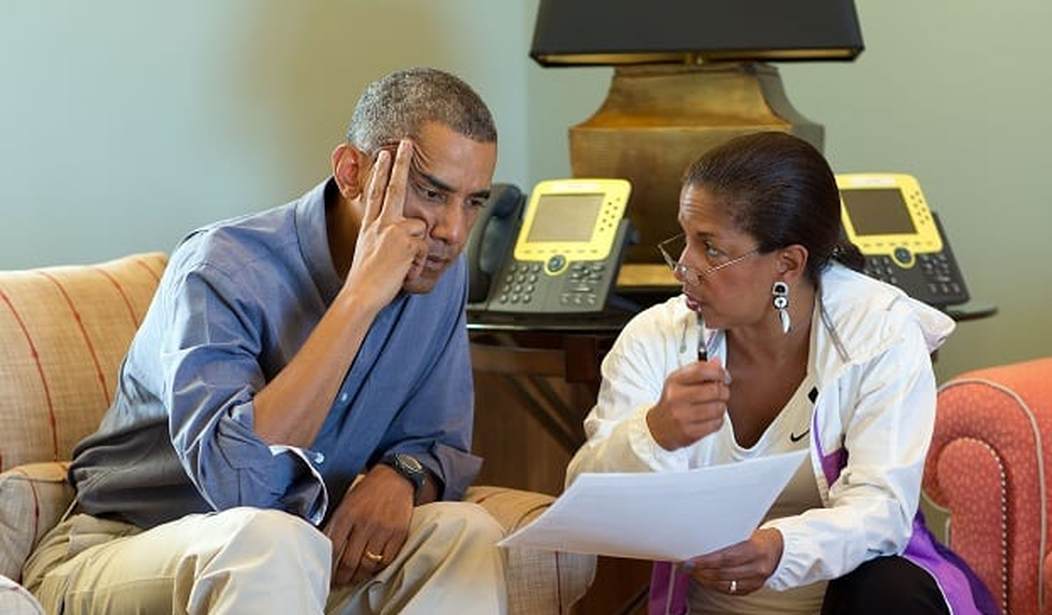
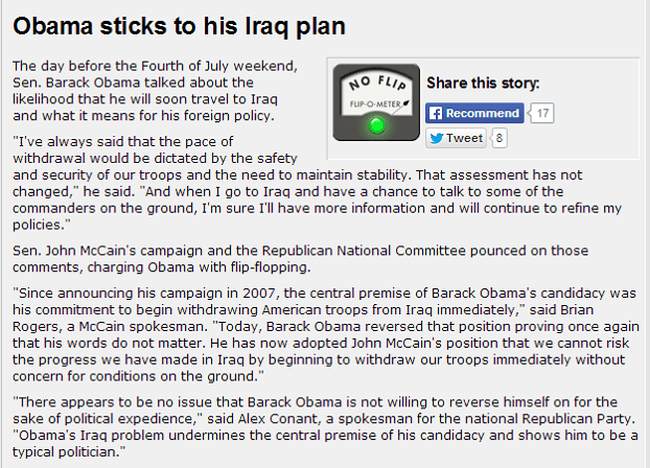




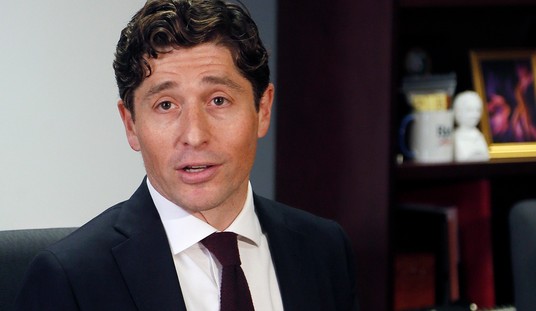





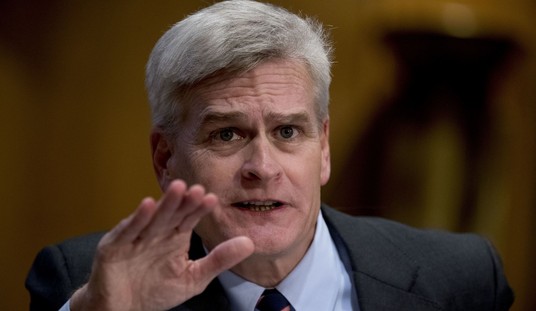

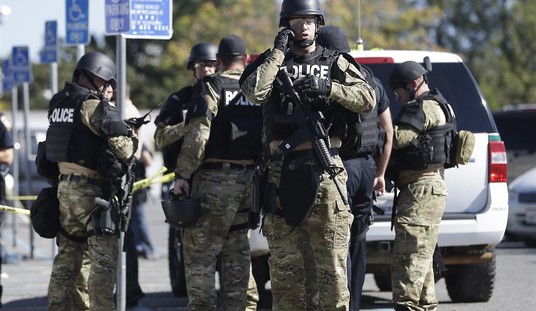
Join the conversation as a VIP Member